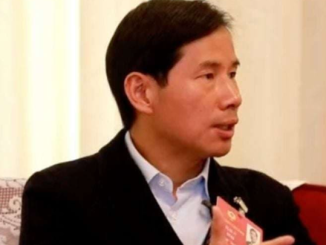
A House committee focused on the Chinese Communist Party (CCP) threat to the U.S. questioned the University of California, Berkeley, last week over a research collaboration with a Chinese institute that could provide a bridge for Beijing to siphon out U.S. military tech secrets, The New York Times reported.
The House Select Committee on the CCP sent a letter to UC Berkeley’s president and chancellor describing “red flags” over the institution’s extensive partnership with Tsinghua University in Shenzhen, which is known for conducting research on technology with both civilian and military applications, the NYT reported. Some Berkely faculty affiliated with the Tsinghua-Berkeley Shenzhen Institute also work on projects for the U.S. government involving so-called “dual use” technology intended for military use, raising concerns about Chinese access to the experts and their research, the letter said.
“Berkeley’s P.R.C.-backed collaboration with Tsinghua University raises many red flags,” the letter said, using the acronym for China’s formal name, the People’s Republic of China, according to the NYT.
Republican Rep. Mike Gallagher of Wisconsin, who chairs the committee, and Republican Rep. Virginia Foxx of North Carolina signed the letter, according to the NYT.
Lawmakers pointed to evidence of Berkeley collaborations with sanctioned Chinese entities including the National University of Defense Technology, the telecommunication firm Huawei and drone maker DJI, suggesting the institution may not have properly disclosed funding sources, NYT reported.
They also worried China could gain access to U.S. defense secrets through the faculty who received funding from the Defense Advanced Research Projects Agency (DARPA) and other U.S. government agencies to work on military technology and serve at the institute.
Only circumstantial evidence could back up that claim, but intelligence agencies and experts have long documented China’s large-scale espionage campaign against the U.S.
For example, in April, a lab apparently supported by the Tsinghua-Berkeley Shenzhen Institute announced it won a contest to further develop a form of advanced semiconductor technology the U.S. government has singled out for increased efforts to block from Chinese companies, according to the NYT.
In May, Indiana Republican Todd Young demanded the Department of Education investigate whether Berkeley violated any funding or disclosure laws while establishing the $220 million research partnership with Tsingua.
The Biden administration has doubled down on long-running exports to prevent Chinese military companies and institutions from accessing sensitive or highly advanced U.S. technology, including types of semiconductors and manufacturing equipment, that power artificial intelligence machines and supercomputers underpinning advanced weapons and defense software.
“We’re seeing a lot of PRC nationals in very high-tech universities that are then starting start-ups, tech start-ups. I think it’s really important to take a closer look at the universities, and how they are funded by the Chinese Communist Party.” – Piper Lounsbury of… pic.twitter.com/Tyg4TJ9fje
— The Select Committee on the CCP (@committeeonccp) July 14, 2023
The committee requested that Berkeley provide comprehensive information about funding, structure technology research, information about current students and alumni associations and adherence to U.S. export controls by July 27, according to the NYT.
Berkeley takes allegations of national security breaches “very seriously,” the institution told the NYT in a statement.
“The campus is reviewing past agreements and actions involving or connected to Tsinghua-Berkeley Shenzhen Institute” and would “fully and transparently cooperate with any federal inquiries,” it said.
* Article From: The Daily Caller


